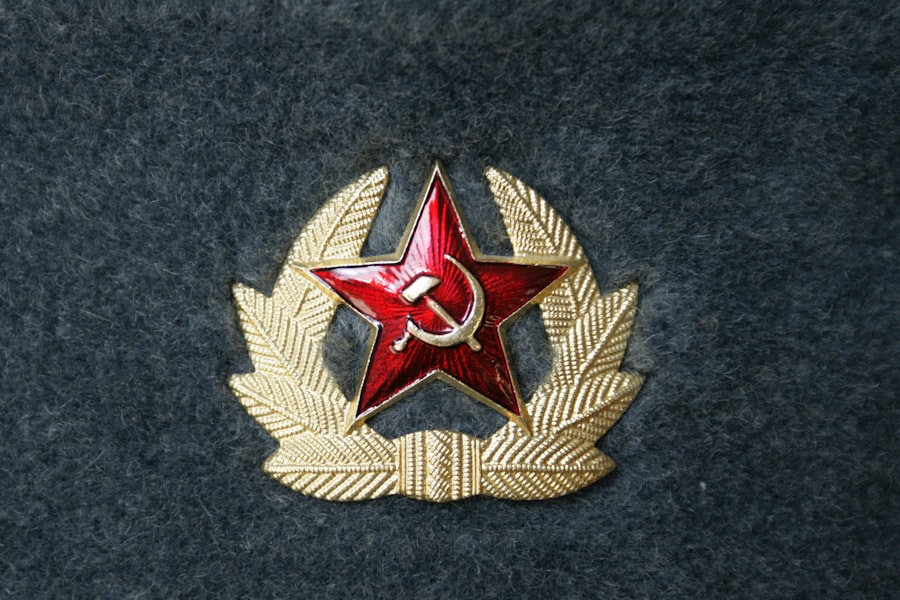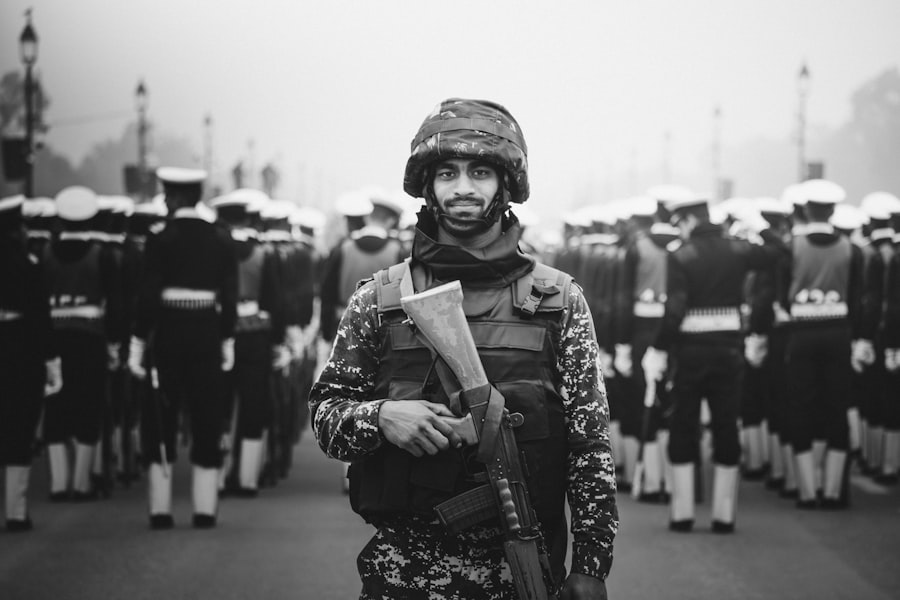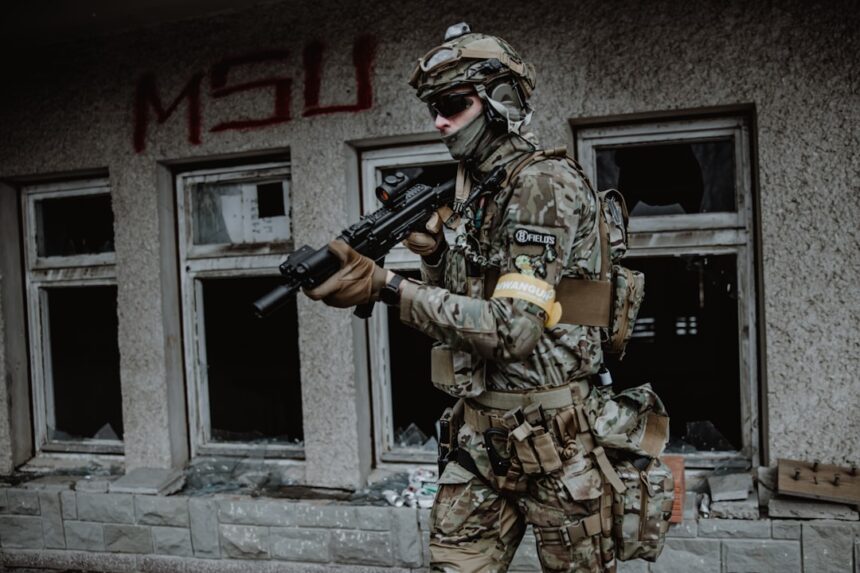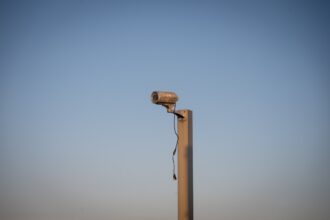The 1990s marked a tumultuous period in Russian history, characterized by profound political, economic, and social upheaval. Following the dissolution of the Soviet Union in 1991, the Russian military found itself at a crossroads, grappling with the consequences of a rapidly changing landscape. This era was not only pivotal for the nation’s transition from a communist regime to a more market-oriented economy but also served as a breeding ground for rampant military corruption.
The disintegration of centralized control and the subsequent chaos allowed corruption to flourish within the military ranks, undermining the integrity and effectiveness of Russia’s armed forces. As the state struggled to redefine its identity and purpose, the military became increasingly susceptible to corrupt practices. The lack of oversight and accountability, combined with the desperation of many military personnel facing economic hardship, created an environment where bribery, embezzlement, and other forms of corruption became commonplace.
This article delves into the various dimensions of military corruption during this critical decade, exploring its roots, manifestations, and far-reaching consequences for Russia’s national security and international standing.
Key Takeaways
- The 1990s saw a crucial era for Russian military corruption, with the collapse of the Soviet Union leading to significant changes in the military and its susceptibility to corruption.
- Privatization and the rise of oligarchs in the Russian military further exacerbated corruption, as powerful individuals gained control and influence over military resources.
- Organized crime played a significant role in military corruption, with criminal groups exploiting the chaos of the 1990s to engage in illicit activities within the military.
- Weapons smuggling and black market activities thrived in the 1990s, posing serious threats to national security and contributing to the erosion of military integrity.
- The lack of accountability and oversight in the Russian military allowed corruption to flourish, ultimately undermining national security and the effectiveness of the military.
The Collapse of the Soviet Union and its Impact on Military Corruption
The collapse of the Soviet Union in December 1991 was a seismic event that reverberated throughout the military establishment. With the dissolution of a superpower came a significant reduction in funding and resources allocated to the armed forces. The once-mighty Soviet military, which had been a symbol of national pride and power, found itself in disarray.
As budgets dwindled and salaries went unpaid, many military personnel faced dire financial situations, leading to an increase in corrupt practices as a means of survival. In this chaotic environment, officers and soldiers alike began to exploit their positions for personal gain. The lack of a clear command structure and oversight mechanisms allowed for widespread embezzlement of funds intended for military operations and maintenance.
The once-disciplined ranks of the Soviet military were now riddled with individuals willing to engage in corrupt activities, further eroding trust within the institution. This transformation not only compromised military readiness but also set a precedent for future generations of military leaders who would continue to operate in a culture of corruption.
Privatization and the Rise of Oligarchs in the Russian Military

The privatization efforts initiated in the early 1990s played a significant role in reshaping the landscape of Russian military corruption. As state-owned enterprises were sold off or dismantled, a new class of oligarchs emerged, many of whom sought to exert influence over military assets and contracts. These individuals often had close ties to government officials and were able to leverage their wealth to secure lucrative defense contracts, further entrenching corruption within the military-industrial complex.
The intertwining of military interests with private enterprise created an environment ripe for exploitation. Oligarchs frequently engaged in corrupt practices such as bribery and kickbacks to ensure that their companies received government contracts. This not only diverted essential resources away from the military but also fostered a culture where loyalty was often bought rather than earned.
As a result, the integrity of military operations was compromised, leading to inefficiencies and a lack of accountability that would have lasting implications for Russia’s defense capabilities.
The Role of Organized Crime in Military Corruption
| Country | Level of Military Corruption | Organized Crime Involvement |
|---|---|---|
| United States | Low | Low |
| Russia | High | High |
| Mexico | Medium | High |
Organized crime played an increasingly prominent role in military corruption during the 1990s, further complicating an already dire situation. As the state weakened and law enforcement struggled to maintain order, criminal organizations began to infiltrate various sectors, including the military. These groups often sought to exploit the vulnerabilities within the armed forces for their own gain, engaging in activities such as arms trafficking and smuggling.
The collaboration between military personnel and organized crime syndicates created a dangerous nexus that undermined national security. Corrupt officials within the military would turn a blind eye to illegal activities in exchange for financial incentives or protection. This symbiotic relationship not only facilitated corruption but also posed significant risks to public safety, as weapons and military equipment could easily fall into the hands of criminal elements.
The pervasive influence of organized crime during this period highlighted the urgent need for reform within the military establishment.
Weapons Smuggling and Black Market Activities in the 1990s
The 1990s witnessed a surge in weapons smuggling and black market activities that were directly linked to military corruption. As the Russian military faced budget cuts and resource shortages, many officers resorted to selling surplus weapons and equipment on the black market as a means of generating income. This illicit trade not only enriched corrupt officials but also contributed to regional instability as weapons found their way into conflict zones.
The proliferation of small arms and light weapons from Russian stockpiles had far-reaching consequences beyond Russia’s borders. Armed groups in neighboring countries often acquired these weapons through corrupt channels, exacerbating existing conflicts and contributing to violence across the region. The lack of effective oversight and regulation allowed this black market to thrive, further entrenching corruption within the military while undermining Russia’s reputation on the international stage.
The Lack of Accountability and Oversight in the Russian Military

A significant factor contributing to military corruption in the 1990s was the pervasive lack of accountability and oversight within the armed forces. With the collapse of centralized authority following the Soviet Union’s dissolution, mechanisms for monitoring and regulating military conduct became increasingly ineffective. This absence of oversight created an environment where corrupt practices could flourish unchecked.
Military leaders often operated with impunity, making decisions that prioritized personal gain over national interests. The absence of transparent processes for procurement and resource allocation allowed for widespread embezzlement and mismanagement of funds. As a result, many soldiers were left without adequate training or equipment, further compromising operational readiness.
The failure to establish accountability mechanisms during this critical period would have lasting implications for the future of Russia’s military.
The Impact of Military Corruption on National Security
The ramifications of military corruption during the 1990s extended far beyond individual cases of misconduct; they posed significant threats to national security. As corruption eroded trust within the ranks, it undermined morale and cohesion among troops. Soldiers who witnessed their leaders engaging in corrupt practices were less likely to feel committed to their duties or believe in the integrity of their mission.
Moreover, the diversion of resources away from essential training and maintenance left the military ill-prepared to address emerging threats. As Russia faced challenges both domestically and internationally, including conflicts in Chechnya and tensions with NATO, a weakened military hindered its ability to respond effectively. The consequences of this corruption were felt not only within Russia but also on a global scale, as other nations began to question Russia’s reliability as a partner in security matters.
Efforts to Combat Military Corruption in the 1990s
Recognizing the detrimental effects of corruption on national security, various efforts were made during the 1990s to combat military corruption within Russia. Some reform-minded officials sought to implement measures aimed at increasing transparency and accountability within the armed forces. Initiatives included attempts to establish independent oversight bodies tasked with monitoring procurement processes and investigating allegations of misconduct.
However, these efforts were often met with resistance from entrenched interests within the military establishment who benefited from the status quo. The pervasive culture of corruption made it challenging to enact meaningful reforms, as those in power were reluctant to relinquish control or expose their own wrongdoing. Despite these obstacles, some progress was made in raising awareness about corruption’s impact on national security, laying the groundwork for future reform efforts.
International Implications of Russian Military Corruption in the 1990s
The implications of Russian military corruption during this period extended beyond national borders, affecting international relations and security dynamics. As corrupt practices proliferated within the Russian military, concerns grew among Western nations regarding Russia’s reliability as a partner in arms control agreements and security cooperation initiatives. The perception that Russia was unable or unwilling to address corruption raised questions about its commitment to international norms.
Additionally, instances of weapons smuggling and illicit arms sales linked to corrupt officials further strained relations with neighboring countries and global powers alike. The proliferation of Russian arms on black markets contributed to regional instability, prompting calls for greater oversight and regulation of arms exports. As international actors grappled with these challenges, they recognized that addressing corruption within Russia’s military was essential for fostering stability both regionally and globally.
Legacy of Military Corruption in the Post-Soviet Era
The legacy of military corruption established during the 1990s continues to shape Russia’s armed forces in the post-Soviet era. While some reforms have been implemented since then, many challenges remain entrenched within the military establishment. Corruption has become deeply ingrained in certain aspects of military culture, making it difficult to eradicate entirely.
Moreover, ongoing issues related to procurement processes, resource allocation, and accountability persist as significant obstacles to effective governance within the armed forces. The lessons learned from this tumultuous decade serve as a reminder of the importance of transparency and oversight in maintaining a capable and trustworthy military institution.
Lessons Learned from the 1990s and the Future of Russian Military Reform
The 1990s stand as a crucial chapter in understanding Russian military corruption’s evolution and its implications for national security. The experiences from this era highlight several key lessons that remain relevant today: first, that robust oversight mechanisms are essential for preventing corruption; second, that accountability must be prioritized at all levels; and third, that fostering a culture of integrity is vital for maintaining public trust in military institutions. As Russia continues to navigate its path forward, addressing these lessons will be critical for ensuring that its armed forces can effectively respond to contemporary challenges while upholding democratic values and international norms.
The journey toward meaningful reform may be fraught with difficulties; however, acknowledging past mistakes is an essential step toward building a more transparent and accountable military institution capable of serving both national interests and global stability.
The 1990s were a pivotal decade for Russia, marked by significant political and economic upheaval that laid the groundwork for systemic issues, including military corruption. During this period, the Russian military faced severe budget cuts, leading to inadequate salaries and resources, which in turn fostered an environment ripe for corrupt practices.




